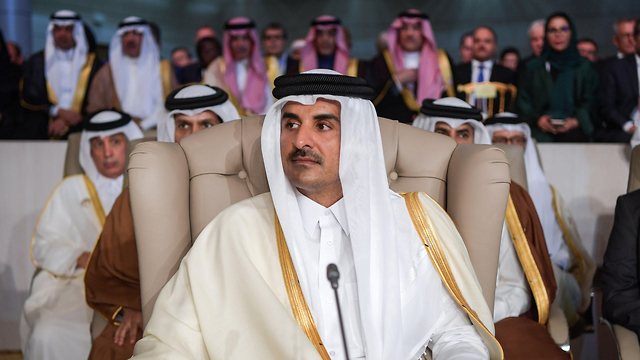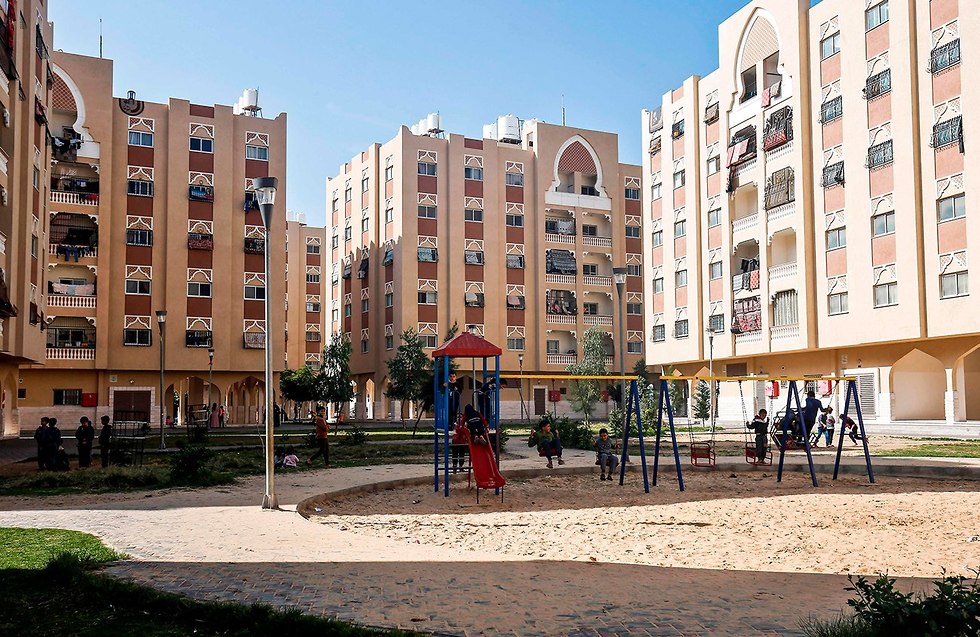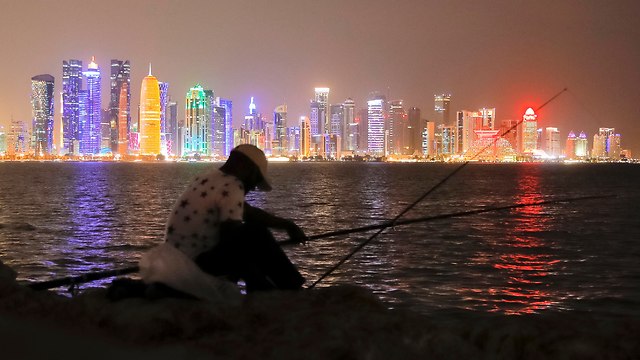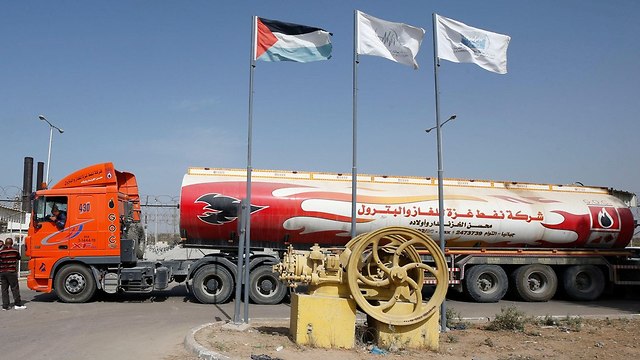
Sheikh Tamim bin Hamad Al Thani, the Emir of Qatar
Photo: AFP

Israel's dilemma regarding the 'bad boy' of the Mideast
Analysis: Qatar has everything to gain from sending money to the PA and Hamas, in its effort to look like a force to be reckoned with in the region; Israel needs the calm the Qatari money brings, but has to maneuver its relationship with the Gulf state in a way that doesn't step on other international toes
The recent round of violence between Israel and militants in the Gaza Strip felt futile, especially in comparison to earlier flare-ups over the past decade. The two-day clash ended with a feeling that the situation was exactly as it was a week before the fighting broke out.
The other players involved also ended up looking grim. Egypt was the one that negotiated the ceasefire, but it seems its hold on Palestinian organizations is not limitless. The Palestinian Authority was entirely absent from this round, exemplifying the near zero power it has over the Gaza Strip. The UN envoy to the region tried to take part in negotiations, but his impact was hardly felt.
Even the Islamic Jihad, pictured lately as the unruly factor in the Strip that has an increasing impact on decision making, wasn't able to notch up any major military achievements, let alone civilian ones.
Qatar seems to be the only player that came out of this flare-up with something to show. The oil-rich Gulf country was widely depicted as the one who officially ended the clashes, with the handing of $480 million to the Palestinians — some to the Strip and some to the Palestinian Authority.
The dramatic move makes Qatar look like more than just a force that keeps the Gaza Strip stable. It also seems to be a patron of the PA, which recently declined Israeli-collected tax revenues, as Jerusalem deducted the sums Ramallah pays to families of Palestinian terrorists incarcerated. This resulted in a dire financial situation, that caused some 160,000 PA public servants to suffer a pay cut.
Israelis don't have a positive image of Qatar, and identify it with the Muslim Brotherhood. Hamas leaders found refuge in the country, and statesman in Qatar enjoy close relationships with Hamas officials in Gaza and around the world. Al Jazeera, the Qatari-owned news channel, is widely known for its fierce messages against Israel, albeit with a softer approach in recent years.
And finally, Erdogan's Turkey is a favored ally of Qatar and the two regimes have close ties.
Despite all that, Qatar is essential for Israel. It leads the civil restoration of the Gaza Strip, which in turn creates political stability, and its emissaries relay messages between Israel and Hamas. Qatari money allows Israel to maneuver between decisions it has made, such deducting sums PA tax revenues, and its desire not to be drawn in to another round of violence caused by the dire financial crisis.
Egypt also understands the complexity of the Qatari role, and has agreed to include its fund in the broad arrangement they are pushing for in the Strip, despite their deep hostility for the Gulf country.
Qatar's moves are based on realpolitik; beyond its desire to prove its regional power and its enemies' weakness — primarily Saudi Arabia — it wants to flaunt its usefulness to the world and to the US. All this in an attempt to ease its isolation that resulted from its clash with the rest of the Arab world in 2017.
The Qatari check could also help move Trump's "deal of the century" forward. It appears to be a hint to the US that Qatar is able to use money to pressure the PA into diplomatic decisions, a move that Saudi Arabia was supposed to fill but ultimately was unable to meet.
Israel must be cautious given the broad international interests at stake in the Palestinian arena, which are often in conflict with one another. It should use the Qatari funds and the relief it gives Gaza as a measure to reach short-term calm and delay the next flare-up as much as possible. It also has to learn how to maneuver better the other international forces that influence Hamas.
On the long run, Israel must maneuver wisely between its interest that Qatar remains active in the Palestinian scene, and the fact that this involvement could hamper Israeli relationship with other Arab countries, primarily with Saudi Arabia.
Israel should also attempt, with its limited power, to help ease the tensions between Qatar and the Arab world, which harms Israel's interests and the interests of its friends in the Middle East and allows the Iranian nuclear threat to grow.
Michael Milstein is head of the Palestinian Studies Forum in the Moshe Dayan Center for Middle Eastern and African Studies in Tel Aviv University.



















